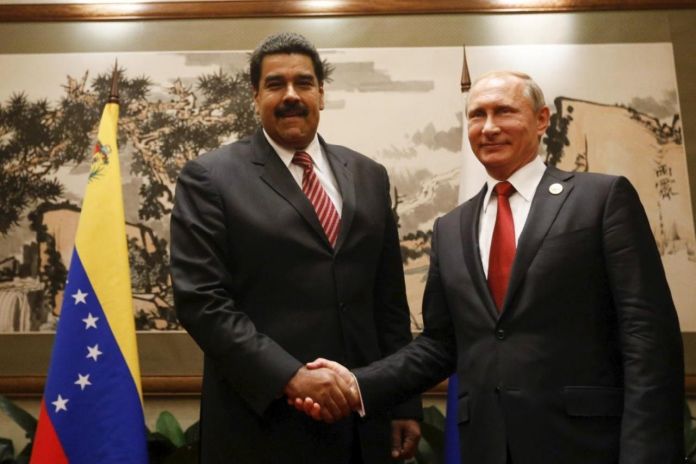By Diana Roy and Amelia Cheatham
Venezuela’s ongoing descent into economic and political chaos is a cautionary tale of the dangerous influence that resource wealth can have on developing countries.
Summary
- Venezuela is an example of a petrostate, where the government is highly dependent on fossil fuel income, power is concentrated, and corruption is widespread.
- Petrostates are vulnerable to what economists call Dutch disease, in which a government develops an unhealthy dependence on natural resource exports to the detriment of other sectors.
- Venezuela continues to grapple with economic and political hardship under President Nicolás Maduro, but US sanctions relief in exchange for democratic reforms have sparked hope for a revival of the oil industry.
Venezuela, home to the world’s largest oil reserves, is a case study in the perils of becoming a petrostate. Since it was discovered in the country in the 1920s, oil has taken Venezuela on an exhilarating but dangerous boom-and-bust ride that offers lessons for other resource-rich states. Decades of poor governance have driven what was once one of Latin America’s most prosperous countries to economic and political ruin.
In recent years, Venezuela has suffered economic collapse, with output shrinking significantly and rampant hyperinflation contributing to a scarcity of basic goods, such as food and medicine. Meanwhile, government mismanagement and US sanctions have led to a drastic decline in oil production and severe underinvestment in the sector. Though Washington eased some sanctions on Venezuela’s oil and gas sector in 2023, signaling a potential détente, Caracas’s failure to meet conditions for a fair election prompted the US government to reimpose sanctions in 2024.
What Is a Petrostate?
Petrostate is an informal term used to describe a country with several interrelated attributes:
- Government income is deeply reliant on the export of oil and natural gas,
- Economic and political power are highly concentrated in an elite minority, and
- Political institutions are weak and unaccountable, and corruption is widespread.
Countries often described as petrostates include Algeria, Cameroon, Chad, Ecuador, Indonesia, Iran, Kazakhstan, Libya, Mexico, Nigeria, Oman, Qatar, Russia, Saudi Arabia, the United Arab Emirates, and Venezuela.
What’s behind the Petrostate Paradigm?
Petrostates are thought to be vulnerable to what economists call Dutch disease, a term coined during the 1970s after the Netherlands discovered natural gas in the North Sea.
![]()





